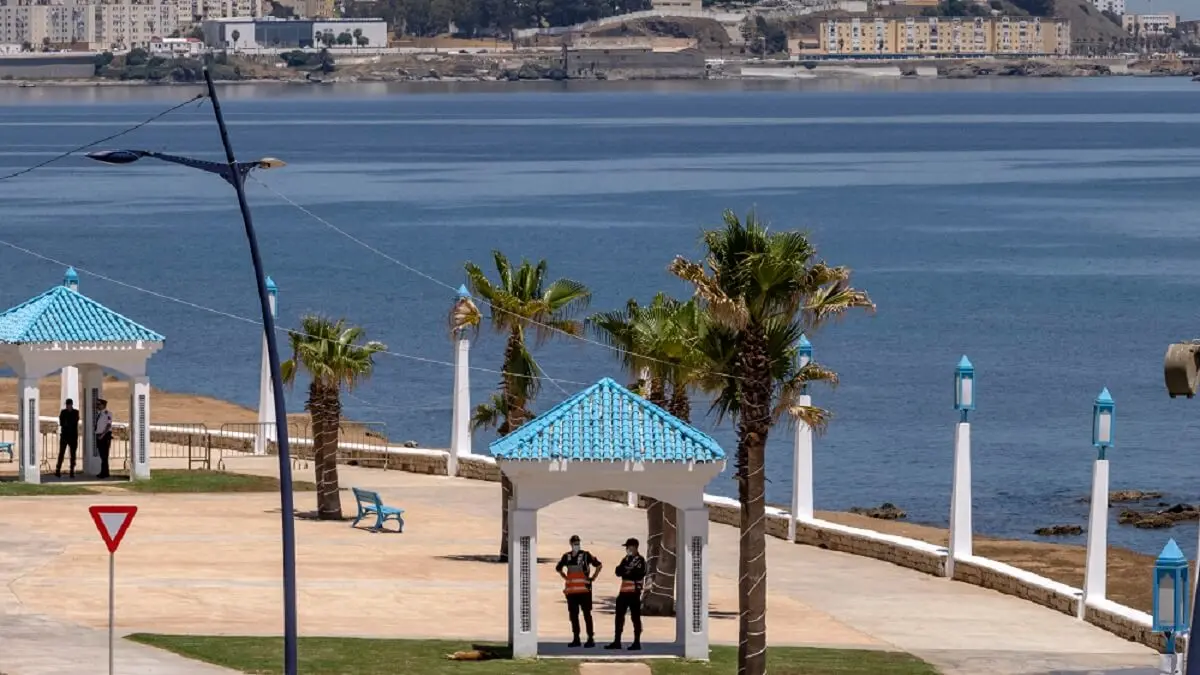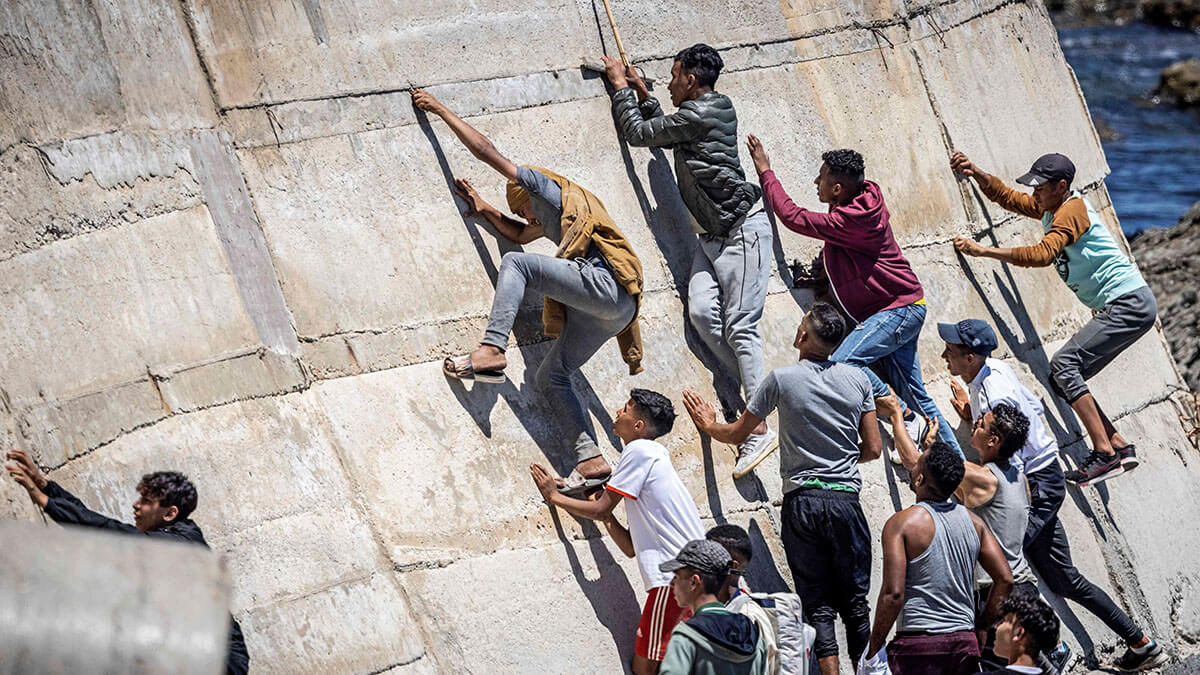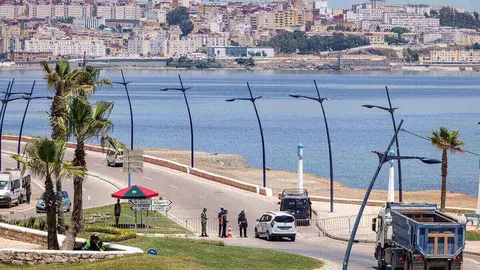New calls on social networks for a mass influx of migrants from Morocco to Spain

After the great success of Moroccan and Spanish security forces and bodies last weekend, social networks are once again full of messages appealing to young people from Algeria, Tunisia and Morocco who are being encouraged to cross the Tarajal border in Ceuta and the Melilla fence illegally.
In recent days, the authorities have arrested more than 60 individuals accused of promoting and coordinating a ‘massive illegal immigration operation’ through social networks.

According to Morocco's former Justice Minister and leader of the Socialist Union of Popular Forces party, Mohamed Ben Abdelkader, on his social networks, the government of Morocco's eastern neighbours, namely Algeria, and activists are responsible for the appeals.
The former leader of the Socialist Union of Popular Forces makes it clear that there is no doubt about who was responsible for organising the so-called ‘Operation Castillejos’ in Fnideq.
#Seeuson15/9 and #15/9FnideqCeuta were the most shared hashtags among those activists, mostly Algerians, who mobilised thousands of people, mostly young men, to cross the borders of Ceuta and Melilla. This time the modus operandi is the same. Through the social network X and Tik Tok, hundreds of accounts, mostly Algerian, mobilised the marches towards the borders of Ceuta and Melilla.
إذا عُرف السبب بَطُلَ العجب
— Leɛyun 🇲🇦 ۞ (@5_ersito) September 16, 2024
دبا عرفنا المشكل منين جاي
"جزائرية وعايشة في المغرب" pic.twitter.com/XqH482UPca
Such assaults show that some of the youth of these countries are trapped in a dead-end labyrinth with no direction. The snapshots shared on social networks clearly portrayed the reality of many young people who, full of hope, leave their lives in the hands of mafias and activist organisations that sell their arrival in Europe as their only salvation. Despite the measures taken by public institutions to prevent such cases, thousands of young people have been lured to the border.
According to reports published by the Moroccan police and security forces, the common work of deporting those who cross the border will be carried out without delay. The same document reports the existence of calls and messages from several Moroccan cities close to the Spanish enclaves.

The migratory movement towards Europe is increasingly unsustainable due to the mafias that carry out this type of mass mobilisation, which only harms those who want to migrate in an orderly and correct manner. So much so that, from last weekend's movements, the police arrested hundreds of immigrants, something that activists on social networks denied could happen.
Taking advantage of people's innocence and desperation is the main motive of these organisations. In addition to the hundreds of people arrested, the mobilisations have led to the death of a young Moroccan man in his attempt to reach Spain.
In view of the possibility of a repeat of last weekend's events, the Moroccan security forces, guided by the DGSN and the Spanish National Police, will reinforce controls in the vicinity.
Thousands of people intercepted
During the security operation deployed, the Moroccan security forces intercepted 4,455 migrants, including 519 foreigners, who were trying to enter Ceuta.
Migrants who were seeking a better life in Spanish and European territory encouraged by the appeals that have been taking place through social networks.
Among those arrested were 3,795 Moroccan adults, 141 Moroccan minors and 519 foreigners, including 164 irregular immigrants of Algerian nationality.
A security source said that six organised assaults were carried out on the border fence separating Ceuta from Morocco, but no entry was successfully completed, as reported by the media outlet Rue 20.










